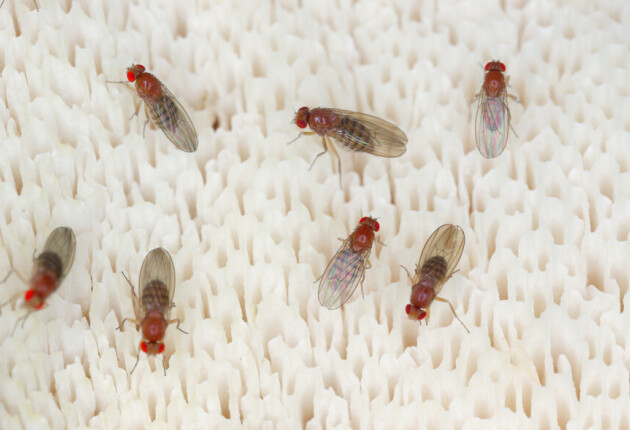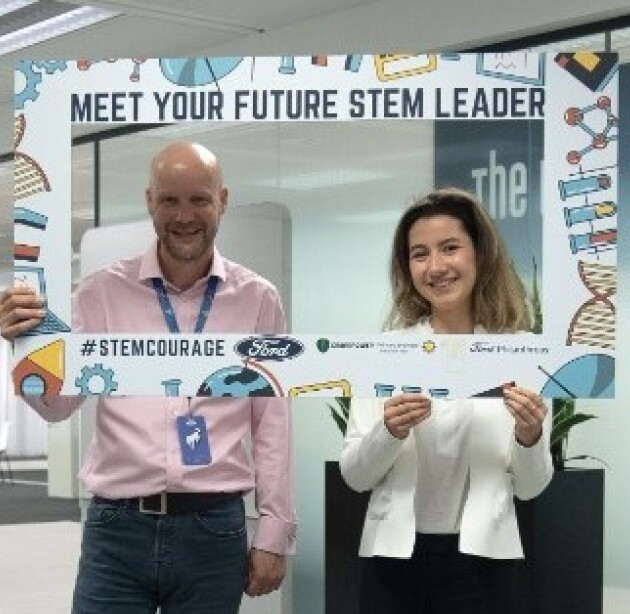Sleep evolution enigma and student becomes CEO for a day: News from Imperial

Here’s a batch of fresh news and announcements from across Imperial.
Heart valve study
New research co-led by Professor Michael Frenneaux, Visiting Professor at the National Heart and Lung Institute at Imperial, found that more than a quarter of healthy, symptom-free over 60s were living with undiagnosed heart valve disease.
 More than 4,200 people had a clinical examination and an ultrasound of the heart during the British Heart Foundation-funded study. Over 28% of participants were found to have at least mild heart valve disease, with valves either not opening or closing properly, resulting in problems with blood flow.
More than 4,200 people had a clinical examination and an ultrasound of the heart during the British Heart Foundation-funded study. Over 28% of participants were found to have at least mild heart valve disease, with valves either not opening or closing properly, resulting in problems with blood flow.
Professor Frenneaux said: “These problems can put extra strain on the heart and make the heart work harder. Over time, it can increase the risk of heart attack, stroke and other heart conditions.”
Symptoms can include: feeling breathless, chest pain, feeling weak or dizzy, swollen ankles and feet, feeling more tired than usual and palpitations in the chest or neck.
The prevalence of clinically significant disease increased with age, laying the foundation for more research into the potential role of screening in the elderly population.
Evolutionary sleep enigma
Most living organisms have a circadian-driven sleep pattern, generally being active during daylight and sleeping at night to minimise exposure to danger and conserve energy. The length of sleep varies widely however: an elephant sleeps for one or two hours a day while bats can spend more than 20 hours asleep. The great frigate bird normally sleeps for 9-10 hours a day, but only 40 minutes a day when it is migrating.
New research by Dr Giorgio Gilestro from the Department of Life Sciences tests whether these disparities in sleep patterns are driven by evolution. His team investigated sleep controls in seven diverse species of fruit fly, spanning 50+ million years of evolution. All species shared circadian-driven patterns, but other controls on sleep (including behaviour, and neuro-pharmacological and cell biological mechanisms) varied by species and environment, suggesting they evolved in response to each species’ own niche.
Learning about the evolution of sleep will help us to understand more about its functions. Read the full paper in Nature Communications.
Data insight to fibrotic conditions
New research has found that one in five people in the UK are diagnosed with fibrotic conditions, with one in 16 experiencing fibrotic multiple fibrotic conditions.
 Fibrotic conditions are scarring conditions, such as liver cirrhosis or pulmonary fibrosis, which impact the function of organs and can lead to organ failure.
Fibrotic conditions are scarring conditions, such as liver cirrhosis or pulmonary fibrosis, which impact the function of organs and can lead to organ failure.
This UKRI funded DEMISTIFI study, used electronic healthcare records of nearly one million UK adults to develop the first estimate of common fibrotic conditions are in the UK.
The authors highlighted that many of the conditions were first reported on death certification rather than in primary or secondary care records, which suggests many conditions are not being diagnosed and therefore remain untreated. The study also highlighted that more funding is required to improve understanding of fibrotic conditions and develop new medications.
"There is an urgent need to recognise scarring disease earlier so that we can prevent people dying from these serious conditions," said Professor Gisli Jenkins, Principle Investigator, DEMISTIFI consortium.
Student to chief engineer in a day
Imperial Mechanical Engineering MSc student, Tatiana Buchanan-Michaelson stepped into the shoes of Andrew Brumley, chief engineer at Ford’s Essex headquarters for a day as part of Plan International UK’s ‘Girls' Takeover’. The initiative sees girls take over top leadership roles to showcase their skills and encourage more girls and young women to pursue careers in traditionally male-dominated industries.
3,500 engineers work on product development at Ford’s Dunton campus to electrify and add new software to vehicles. Throughout the day, Tatiana explored the future of intelligent vehicle technology and joined a vehicle appraisal session where she suggested areas for feature improvement. 
She said: “Girls tend to avoid going into STEM, not because they don’t have the skills to do so, but because they don’t see other women doing it and they think it’s not their place. I think it’s important to be vocal about the fact that with hard work and dedication, anyone can go into STEM roles.”
Supporting under-represented young scientists
The Confront Inequality in Education (CIE) Mentoring Programme has concluded its fourth year running.
The programme is run in collaboration with Ark Academy Wembley and aims to combat educational inequalities and broaden STEM participation of students from under-represented backgrounds.
 This year had a record number of 46 Year 12 students participate, who were paired with mentors from Imperial College London. Mentors included undergraduate students and senior researchers who worked closely with their mentees to develop research projects and create research posters. Congratulations to the winners of the poster showcase:
This year had a record number of 46 Year 12 students participate, who were paired with mentors from Imperial College London. Mentors included undergraduate students and senior researchers who worked closely with their mentees to develop research projects and create research posters. Congratulations to the winners of the poster showcase:
- Judges’ winner: Rizona Brestovci
- Judges’ runner-up: Asmagh Bouhali
- People’s choice: Arub Khan
The CIE mentoring scheme enabled me to communicate and learn from inspiring, leading figures in STEM,” said Rizona. “The CIE mentorship taught me a university style approach to my education that I will implement in my schoolwork and future projects throughout the rest of my academic career,” said Arub.
To find out more about CIE, visit our webpage.
Article text (excluding photos or graphics) © Imperial College London.
Photos and graphics subject to third party copyright used with permission or © Imperial College London.
Reporter
Eleanor Green
Communications Division
Samantha Rey
Communications Division
Hayley Dunning
Communications Division
Jacklin Kwan
Faculty of Natural Sciences
Corinne Farrell
Communications Division